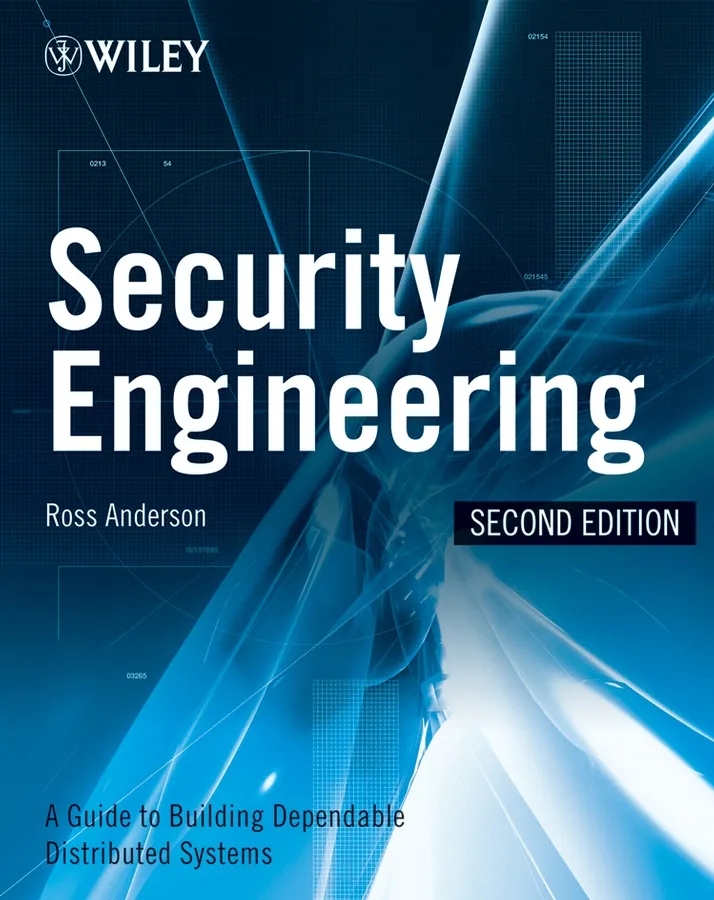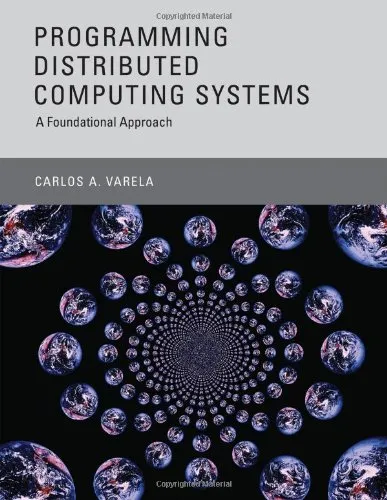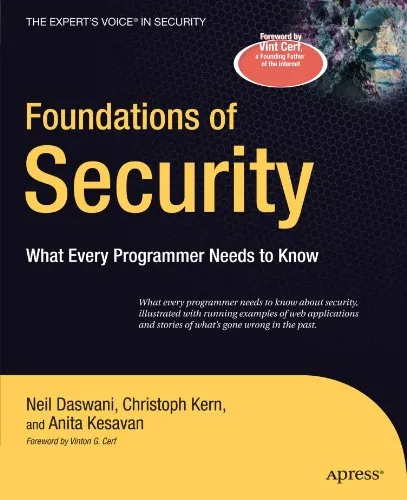Security engineering: a guide to building dependable distributed systems
5.0
Reviews from our users

You Can Ask your questions from this book's AI after Login
Each download or ask from book AI costs 2 points. To earn more free points, please visit the Points Guide Page and complete some valuable actions.Related Refrences:
Introduction to "Security Engineering: A Guide to Building Dependable Distributed Systems"
In the ever-evolving landscape of technology, 'Security Engineering: A Guide to Building Dependable Distributed Systems' serves as an essential compendium for understanding the myriad aspects of security in engineering. Authored by Ross J. Anderson, this comprehensive guide details the essential principles and practices needed to design steadfast and secure distributed systems in today's connected world.
Detailed Summary of the Book
"Security Engineering" provides an in-depth examination of the principles and practices vital to constructing secure systems. Unlike other texts focused solely on cryptography or network security, this book explores the broader array of security architecture required to protect distributed systems. It discusses topics such as security planning, user authentication, risk management, and the use of cryptographic protocols.
The book is structured to progressively build a reader’s understanding, starting from foundational concepts to advanced techniques. It introduces real-world case studies and historical anecdotes, illustrating how past incidents can inform current security engineering practices. Thus, it serves as both an academic resource and a practical guide for professionals.
The author provides a detailed itinerary through complex topics such as API security, attack modeling, secure design patterns, and the security implications of human factors. Each chapter concludes with a set of exercises designed to consolidate learning and encourage further exploration.
Key Takeaways
- The importance of understanding the interplay between different security disciplines such as cryptography, hardware security, and operating systems.
- The critical role of human factors and usability in security design.
- Strategies for balancing security requirements with practical implementation in complex systems.
- Comprehensive case studies showcase the lessons learned from both failures and successes in the field.
- Relevant methodologies for risk assessment and threat modeling that form the backbone of creating robust security architectures.
Famous Quotes from the Book
"Security engineering is about building systems to remain dependable in the face of malice, error, or mischance."
"The security engineer’s primary goal is not to protect information, but to protect people and their freedom to make choices."
Why This Book Matters
The importance of 'Security Engineering' in today's digital ecosystem cannot be understated. As our reliance on technology deepens, so does the complexity and sophistication of cyber threats. Security engineering has evolved from an ancillary concern to a principal pillar of software and system development.
This book stands out because it not only addresses the technical dimensions of security but highlights the socio-technical systems involved. Anderson's narrative underscores a fundamental truth: the essence of security lies not only in the techniques and tools we develop but also in understanding the motivations and practices behind their use.
For professionals in the field, this book is an indispensable resource offering clarity on best practices and innovative perspectives on tackling security challenges. For students and academics, it provides a robust framework and thought-provoking insights that extend beyond surface-level knowledge. Its impact is reflected in the secure systems being built today, which are grounded in the principles elaborated in this text.
Free Direct Download
You Can Download this book after Login
Accessing books through legal platforms and public libraries not only supports the rights of authors and publishers but also contributes to the sustainability of reading culture. Before downloading, please take a moment to consider these options.
Find this book on other platforms:
WorldCat helps you find books in libraries worldwide.
See ratings, reviews, and discussions on Goodreads.
Find and buy rare or used books on AbeBooks.
1470
بازدید5.0
امتیاز0
نظر98%
رضایتReviews:
5.0
Based on 0 users review
Questions & Answers
Ask questions about this book or help others by answering
No questions yet. Be the first to ask!















